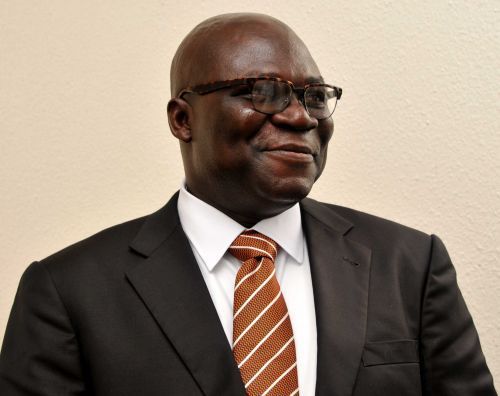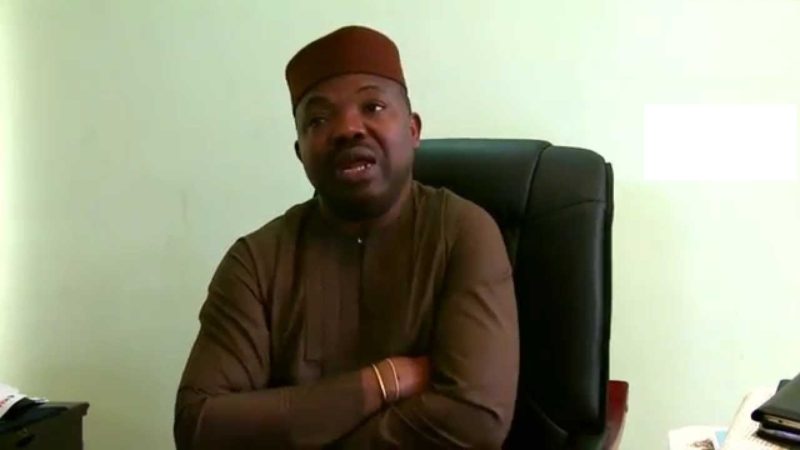MONDAY X-RAY: Reinventing The Polity
To meet the global seventeen Sustainable Development Goals envisioned by 2030, the polity requires reinvention, and by extension the economy requires structural adjustment. It would be recalled that “in September 2015, the General Assembly of the United Nations adopted the 2030 Agenda that includes seventeen Sustainable Development Goals (un.org).”

The Goals which are fundamentally designed to transform our world are No poverty; Zero hunger; Good Health and Wellbeing; Quality Education; Gender Equality; Clean Water and Sanitation; Affordable and Clean Energy; Decent Work and Economic Growth; Industry, Innovation and Infrastructure; and Reduced Inequality. Others are Sustainable Cities and Communities; Responsible Consumption and Production; Climate Action; Life Below Water; Life on Land; Peace and Justice Strong Institutions; and Partnerships to achieve the Goals.
No amount of attacks will stop review of broadcasting code – Lai Mohammed
While these goals may appear utopian, it behoves us as a member of comity of nations to strive to achieve most of them, being a signatory to the resolution which is a blueprint to achieve a better and more sustainable future for the country.
The euphoria that greeted the attainment of independence in 1960 was short-lived as political turmoil enveloped the country shortly thereafter. The subordination of the military to civil authority was thrown into the wind as the military became our rulers from 1966 to 1979 and from 1984 to 1999. Albeit, an aberration, the military must be credited with many of the giant strides we have made as a nation. However, as former USA President Bill Clinton said, “in a democracy, development is slow in taking place; however, without democracy, sustainable development cannot be guaranteed.”
Our new democracy is twenty years old and how prepared are we for the envisioned 17 SDGs by 2030, which is just 11 years away? Without being an alarmist or pessimist, they are neither attainable nor sustainable given the direction of the economy and polity.
Let me concentrate on just two areas that informed my pessimism- our political culture and the civil service disconnection.
Political culture relates to attitudes, beliefs and values which underpin the operation of presidential political system. The question is, what are our evaluative judgements about our current brand of political system? Can it take us to the Promised Land? Can we continue to spend over 80% of our income/resources on recurrent matters and expect to achieve up to 50% of SDGs by 2030? Is our brand of presidential system relevant to our environment and peculiarity? Should political parties be funded by the state? Do we need a bi-camera legislature and can our economy sustain that? Do we require equal representation or should representation be based on contentious population? Must we have 36 or more ministers and hundreds of aides when the civil service is in existence? Why must a minister come on board with many aides when the civil service is there as the engine room of government? How do we cut or curb wastes within our political culture? The questions are legion.
What about the civil service? Our civil service, ordinarily, should be the body of officials, paid for out of the public purse working in ministries, department and agencies of government to service and execute policies of government of the day. Entrance to the civil service classes (administrative, executive, technical and clerical cadres) ought to be competitive and based on merit. The civil service as a permanent institution of government should have an ethos of political neutrality, willing and able to advise and serve an elected government of any political party. Most senior civil servants have been privy to the fragmentation and politicisation of the service. Thus, the political neutrality of the civil service is now doubtful and consequently, it is always under attack. Some seventeen years ago, SERVICOM (service compliance) was introduced to rejig the civil for better, timely and effective service delivery.
Regrettably, the gains have been lost and SERVICOM is now a shadow of its former self. Despite the existence of the Bureau of Public Service Reforms, the civil service hardly delivers on its mandate.
What is the way forward? A starting point is for us to contextually redefine our political culture. We cannot holistically take the United States of America’s political culture neither should we attempt to over copy what is in operation there. Our democracy is the most expensive in the world and this is not sustainable. The number of political parties is embarrassingly a motley nuisance (no thanks to the judgment of the Supreme Court on the freedom of association without judicial activism to say that political parties should not be funded with public funds).
Political bureaucracy should be downsized. The number of presidential aides, ministers and ministerial aides should be reduced to less than 40% of what it is now. MDAs (ministries, departments and agencies) of government should be drastically reduced. Public office should be made less attractive.
The civil service bureaucracy requires fundamental restructuring. Service delivery is at its lowest ebb. The reports of the various past reform committees should be brought out from wherever they are kept.
Of course, many of the foregoing requires constitutional reform. Let us have the courage to tinker with the current Constitution that is not leading us to the Eldorado. We have all it takes to be great, but we must reinvent the wheel.
In this second and final term of PMB, the process should start.
E-mail: drcfassyaoyusuf@gmail.com
Mobile: 0809 615 8530 (SMS only)







